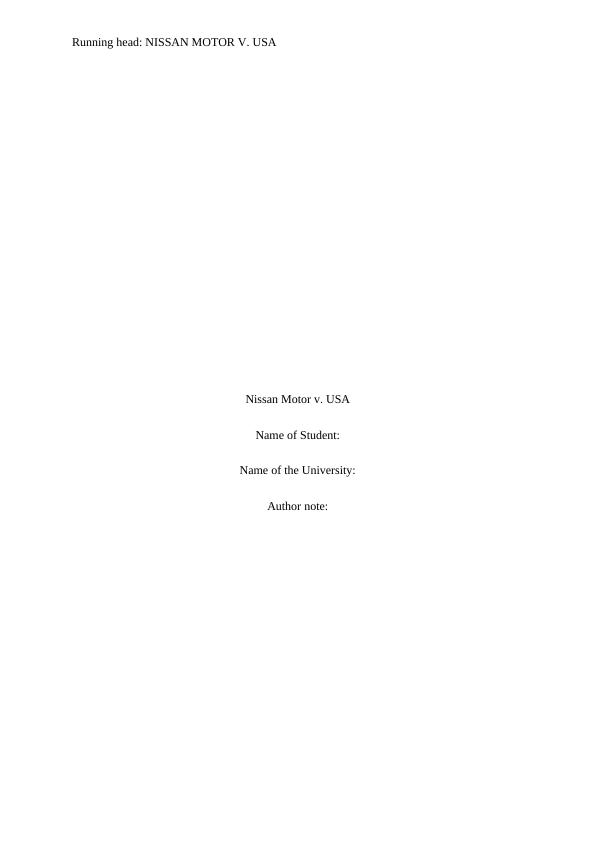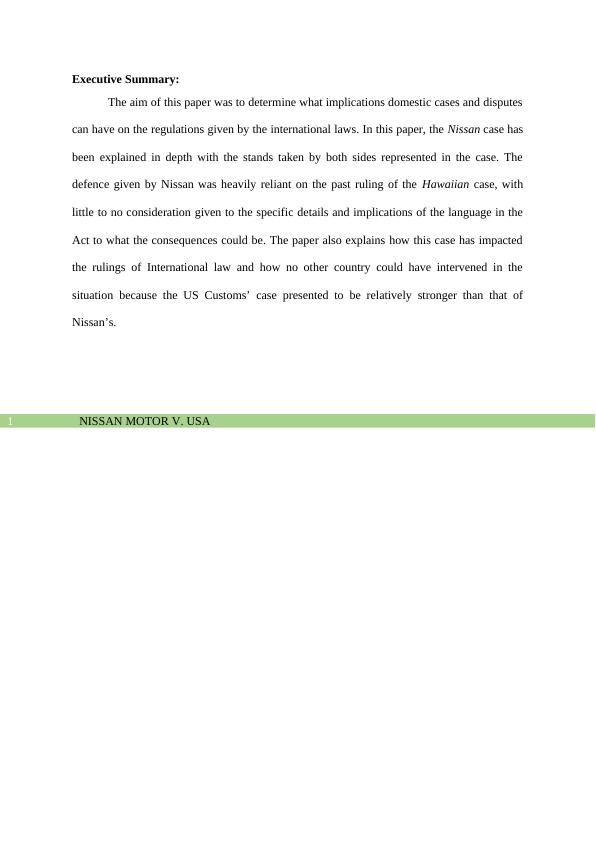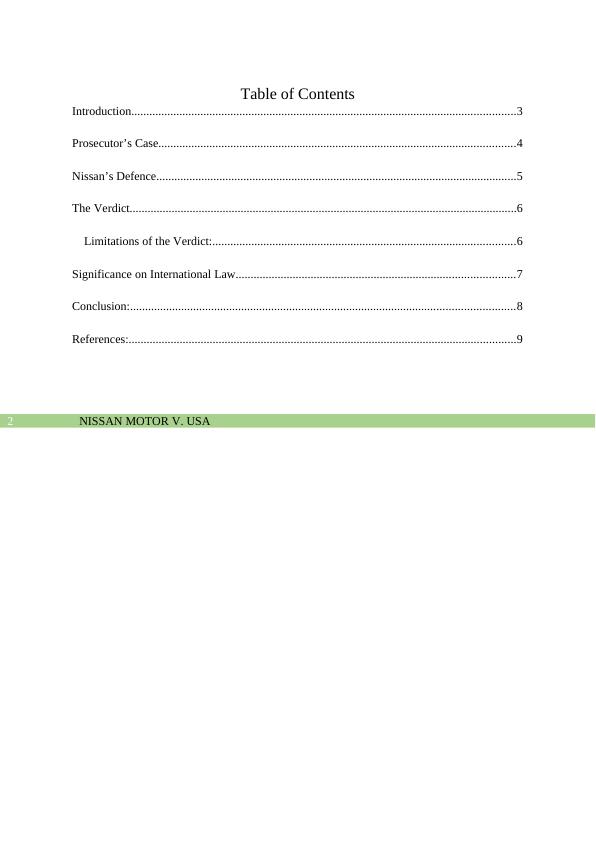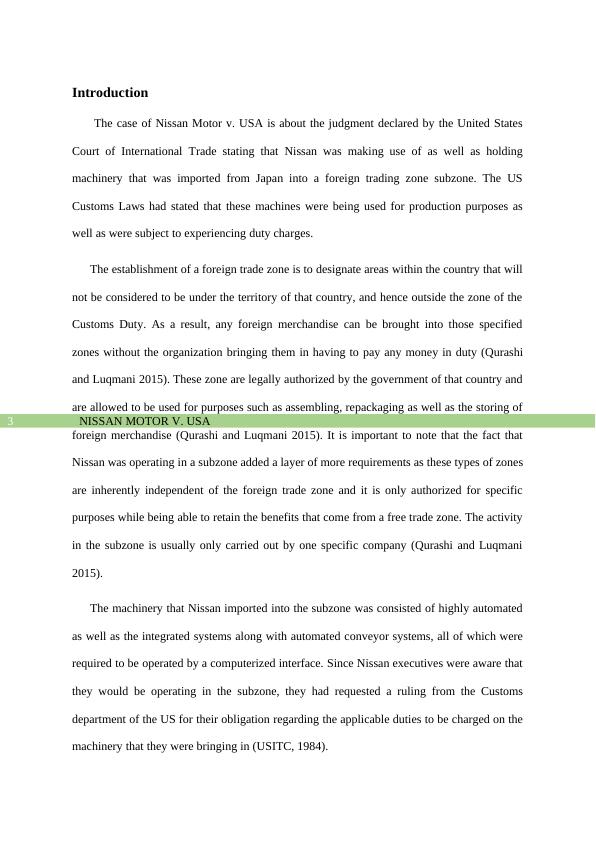Nissan Motor v. USA
Students are required to research an International Law Case of your choice from the list below and explain in a report format on the background of the dispute, facts, legal issues, individual parties’ arguments, tribunal’s decision and the importance of the case in international law.
13 Pages2740 Words44 Views
Added on 2023-01-18
About This Document
This paper explores the implications of domestic cases on international laws through the Nissan Motor v. USA case. It discusses the stands taken by both sides, the impact on international law, and the court's verdict.
Nissan Motor v. USA
Students are required to research an International Law Case of your choice from the list below and explain in a report format on the background of the dispute, facts, legal issues, individual parties’ arguments, tribunal’s decision and the importance of the case in international law.
Added on 2023-01-18
ShareRelated Documents
End of preview
Want to access all the pages? Upload your documents or become a member.
Nissan Motor v. USA.
|7
|431
|95
Legal Aspects of Nissan Motor
|9
|2269
|163
International Commercial Arbitration Assignment
|12
|3159
|130
Relationship of Company Supplier Assignment
|5
|786
|14




